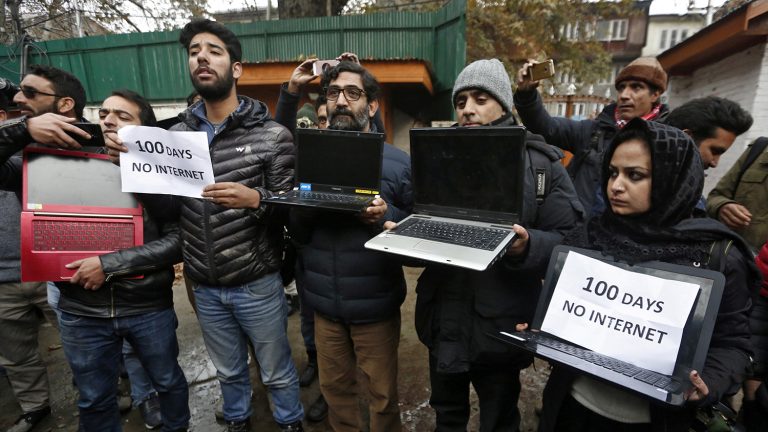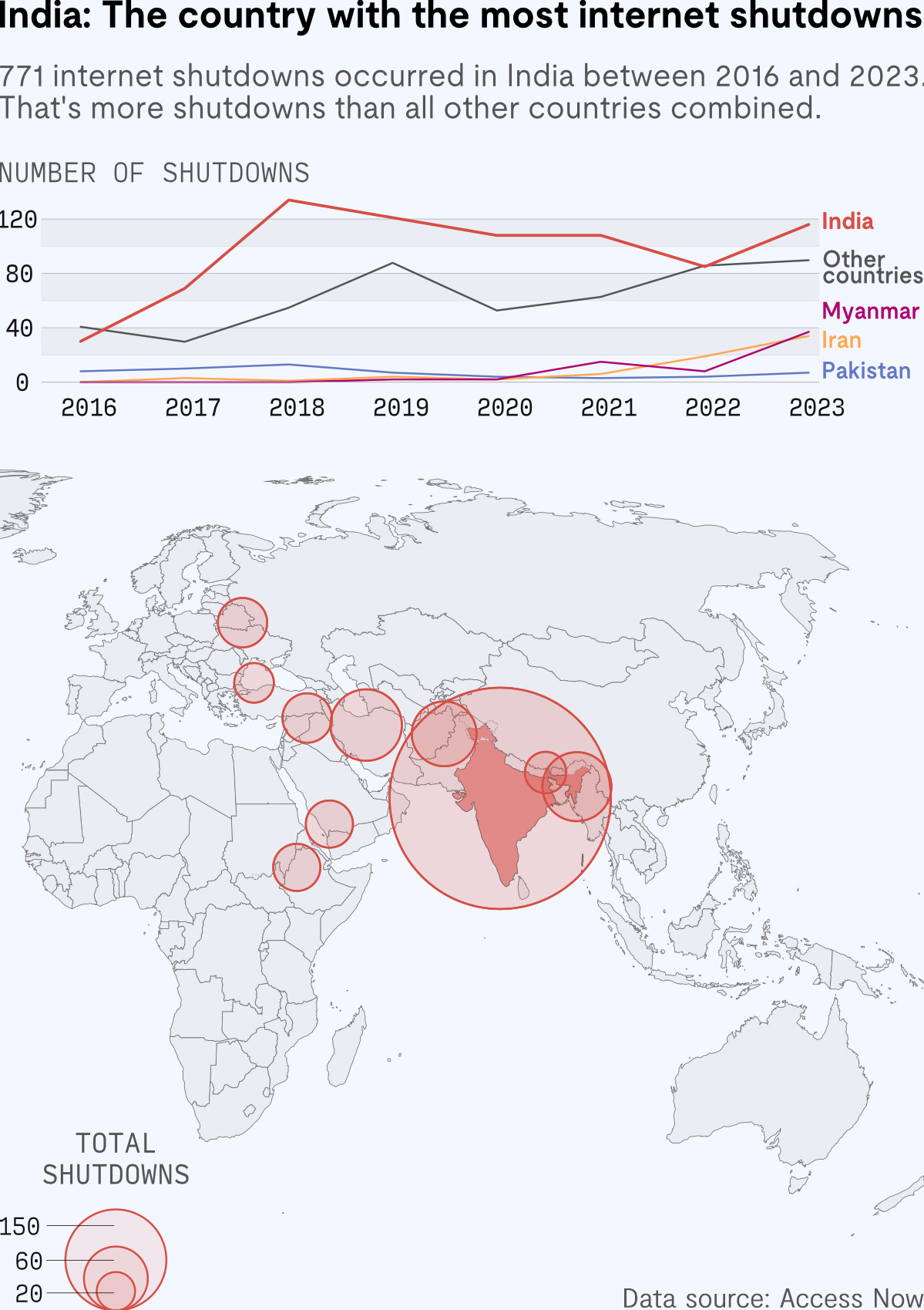
- There have been 51 internet blackouts in India in 2024 so far.
- Activists say there is no form of an internet shutdown that is reasonable or necessary.
On September 10, when the northeast Indian state of Manipur announced a five-day internet shutdown in response to student-led protests, citizens were livid — but not surprised.
India has been a leader in internet shutdowns, by a huge margin, for nearly a decade, according to data shared by digital rights watchdog Access Now.
While some authoritarian regimes, such as those in China, North Korea, and Russia systematically censor, surveil, or limit the internet, India’s citizens have relatively free access. But India is unique among democratic countries for its frequent enforcement of blackouts. Between 2016 and 2023, India shut down the internet 771 times, Access Now’s data shows.

Myanmar and Ukraine ranked second on the list of internet shutdowns in 2023 and 2022, respectively. “These are regions obviously embroiled in conflict. And if you look at the margin between India and the second spot — massive,” Namrata Maheshwari, senior policy counsel at Access Now, told Rest of World. “There is no form of an internet shutdown that is proportionate or necessary.”
Reasons for the blackouts in India have included the government’s attempts to control agitation surrounding the Citizenship Amendment Act, suppress the farmers’ protests, and curb cheating during exams, according to Software Freedom Law Center, India’s tracker on internet shutdowns.
The majority of shutdowns in India have historically occurred in Jammu and Kashmir, a region at the center of a decades-long dispute between India, Pakistan, and China. In August 2019, it experienced 552 consecutive days of internet blackout, the world’s longest shutdown in history.
The United Nations considers internet access a basic human right. Blackouts adversely affect education, jobs, and social services; they hinder access to food and medical care. “What gets delayed is access to justice, access to emergency services, preservation of evidence, simply because an internet shutdown suppresses the spread of information when it’s necessary,” Shruti Narayan, Access Now’s Asia Pacific policy counsel, told Rest of World.
Last year, the Indian government shut down the internet 116 times, Access Now’s data shows. Myanmar and Iran were a distant second and third, with 37 and 34 shutdowns, respectively.
Going by the trends so far this year, India is likely to remain a leader in stifling connectivity — by a mile.
source : restofworld
